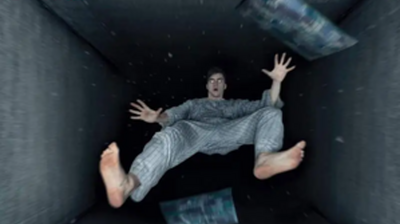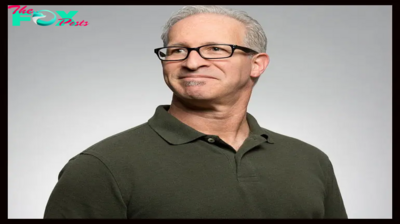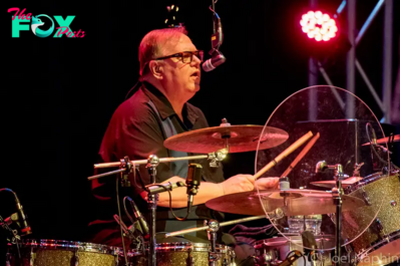Entertainment
Three contrasting approaches to music, all legitimate, on three nights in Aspen – Seen and Heard Worldwide
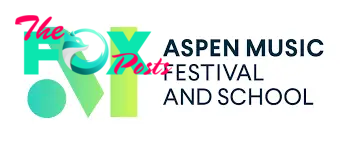
 United States Aspen Music Pageant 2024 [3]: Harris Corridor, Aspen, Colorado. (HS)
United States Aspen Music Pageant 2024 [3]: Harris Corridor, Aspen, Colorado. (HS)
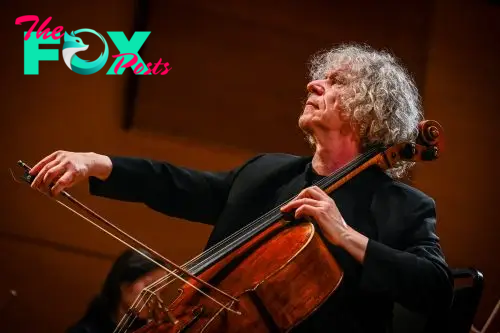
Pianist Jeremy Denk by no means appears to play something like anybody else does. The American String Quartet goals for polish and unanimity. Conductor Nicholas McGegan finds pleasure within the music. In their very own methods, every delivered extraordinary, if very totally different, concert events this week on the Aspen Music Pageant.
Denk’s was placing, specializing in Charles Ives’s Harmony sonata. He known as it a summation of the early-twentieth-century composer’s distinctive method to music, referencing every part from Beethoven and Bach to church hymns and American vernacular. Ives used these fragments as acquainted signposts amongst his trademark dissonance.
Over the sonata’s 45 minutes, all of this could sound randomly slammed collectively, however Denk in some way made it coherent. His extremely extroverted, emphatic method executed the dense, advanced music to shine a highlight on the main points. He discovered sweetness, even a kind of ethereal texture, in softer moments.
Every of the 4 actions photos a nineteenth-century literary big who lived in Harmony, Massachusetts. Denk opened the primary, ‘Emerson’, with a blast of a cadenza that crammed in a lot of the themes, then highlighted the various references that spin off from them. He contrasted fast-moving music with gradual hymns within the second motion, ‘Hawthorne’, a tone poem based mostly on the brief story ‘The Celestial Railroad’.
The third motion’s simplicity, a mirrored image of the Alcotts’s house life, was a balm, emphasizing the sweeter variations of a number of the previous music. The finale, ‘Thoreau’, started and resulted in a peaceable haze, slipping seamlessly from nature to philosophy, a lot because the writer did in his works. This tour-de-force mixed sharply customary (if considerably gaudy) pianism with depth of understanding.
So, in its method, did the remainder of the recital. Denk led as much as the ‘Harmony’ with works that impressed Ives. First was Bach’s Partita No.3 in A minor. Whereas others may goal for readability and refinement, Denk aimed for energy and authority, enjoying a lot louder than we often hear however figuring out Bach’s inventive genius anyway.
Subsequent got here a set of syncopated music, a nod to Ives’s appropriation of ragtime and different early jazz references. The ragtime traditional ‘Heliotrope Bouquet’ was performed a lot sooner than standard however with a reverence for the rhythms. Then, pungent with dissonance, Ruth Crawford Seeger’s two-minute ‘Piano Examine in Combined Accents’ set the stage for Mozart’s Gigue in G main in a deliciously ragtime-enhanced interpretation. In Beethoven’s Piano Sonata No.30, Denk attacked the primary two actions with bluster and a footballer’s pace, lastly letting the lyricism by means of on the Andante finale.
For an encore, Denk tore into pianist Donald Lambert’s unholy model of the ‘Pilgrims’ Refrain’ from Wagner’s Tannhäuser – with deal extra accuracy than Lambert’s recordings and loads of soul.
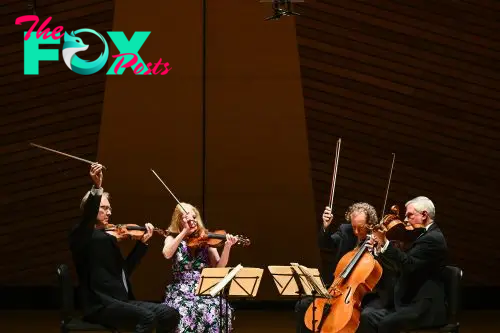
Beethoven additionally performed a task for the American String Quartet on Monday. Their traversal of the Quartet in F main was elegant and polished however, for me, the opposite quartet in F main on this system, by Ravel, was nothing in need of superb. (I admit it’s one in every of my private favorites.) The certain fingers of violinists Peter Winograd and Laurie Carney, cellist Wolfram Koessel and violist Daniel Avshalomov unfurled Ravel’s sudden adjustments in tempo, meter, tone and harmonic inflections with ease. Although the piece debuted in 1903, it influenced jazz composers and gamers for the remainder of the 20th century. It sounded completely contemporary.
Avshalomov, who’s retiring from the quartet in September, acquired Shostakovich’s Quartet No.13 off with simply the best haunted temper. After the joyful Beethoven and earlier than the elegant Ravel, this lengthy, melancholy solo set the tone for the composer’s portrayal of how terrifying life was for artists in late Sixties Soviet Russia. The music’s ominous gestures and sudden descents into dissonance lurked round each nook.
As a substitute of utilizing the wood sides of their bows to strike their devices (references to dreaded knocks on doorways), the quartet known as on their buddy, pianist Anton Nel, to cover offstage and hit a cigar field to supply the sounds (and save their bows).
Thursday’s Baroque Night needed to be the happiest of the week. McGegan tried to elucidate how Haydn, a pillar of the Classical Period, certified for inclusion. It mattered not as soon as cellist Stephen Isserlis launched into Haydn’s Second Cello Concerto. He stands out as the solely classical musician on the planet who can out-joy McGegan.
They created an exhilarating romp by means of the concerto. As McGegan and concertmaster Robert Chen spurred the orchestra on, Isserlis, his mop of silvery hair flopping merrily with Haydn’s rhythms, his fingers flying fleetly over the fingerboard, appeared to induce the beat ahead in each phrase. His personal mesmerizing cadenza forged a contemporary gentle on Haydn’s gestures, and the piece sailed house within the Rondo finale on wings.
His encore was a wholly pizzicato, delightfully folksy dance by means of ‘Chonguri’ by the Georgian cellist and composer Sulkhan Tsintsadze.
The remainder of this system, additionally buoyant, included a set of arias from Handel’s Orlando, particularly these sung by sopranos Sarah Fleiss and Maria Vasilevskaya. A J.S. Bach cantata, ‘Jauchzet Gott in allen Landen’, featured lithe singing from soprano Amalia Crevani and deft soprano trumPet work from Jacob Merrill.
Harvey Steiman
8.7.2024, Beethoven, Shostakovich, Ravel: American String Quartet / Peter Winograd, Laurie Carney (violins), Daniel Avshalomov (viola), Wolfram Koessel (cello)
Beethoven – String Quartet in F main, Op.135
Shostakovich – String Quartet No.13 in B-flat minor, Op.138
Ravel – String Quartet in F main
10.7.2024, Recital: Jeremy Denk (piano)
J.S. Bach – Partita No.3 for Keyboard in A minor
Chauvin/Joplin – ‘Heliotrope Bouquet’
Crawford Seeger – ‘Piano Examine in Combined Accents’
Mozart – Gigue in G main
Bolcom – ‘Swish Ghost Rag’ from Three Ghost Rags
Beethoven – Piano Sonata No.30 in E main
Ives – Piano Sonata No.2 ‘Harmony, Mass., 1840-60’
Encore: Lambert – ‘Pilgrim’s Refrain’
11.7.2024, ‘A Baroque Night’: Stephen Isserlis (cello), Aspen Pageant Ensemble / Nicholas McGegan (conductor), Harris Corridor
Haydn – Overture to Orlando paladino; Cello Concerto No.2 in C main
Handel – from Orlando: ’Consolati o bella’ [Camille Robles (mezzo-soprano), Magdalena Kuźma (soprano), Sarah Fleiss (soprano)]; ‘Quando spieghi i tuoi tormenti’ [Kuźma]; ‘Amor è qual vento’ [Fleiss]; ‘Verdi piante’ [Maria Vasilevskaya (soprano)]
J.S. Bach – Cantata: ‘Jauchzet Gott in allen Landen’ [Amalia Crevani (soprano), Jacob Merrill (trumPet)]
Encore: Tsintsadze – ‘Chonguri’
-

 Entertainment1h ago
Entertainment1h ago3 Completely different Kinds of TV Appearing Roles
-

 Entertainment2h ago
Entertainment2h agoMeet Ava, the Golden Tiger Cub in Thailand Set to Be the Next Cute Viral Sensation
-

 Entertainment2h ago
Entertainment2h agoBest Tom Hardy Movies that Are Must-Watch
-

 Entertainment13h ago
Entertainment13h agoBeyonce to Headline Halftime Show During NFL Christmas Game
-

 Entertainment14h ago
Entertainment14h agoDid You Correctly Answer This Poughkeepsie Related Jeopardy Question?
-
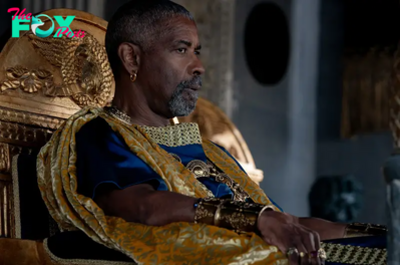
 Entertainment18h ago
Entertainment18h agoWhat to Know About Denzel Washington’s Gladiator II Character
-

 Entertainment20h ago
Entertainment20h agoChanges Made in New York to “Men Working” Construction Signs
-

 Entertainment1d ago
Entertainment1d agoRemembering Song Jae-rim: A Look at His Best Movies and K-Drama Performances
